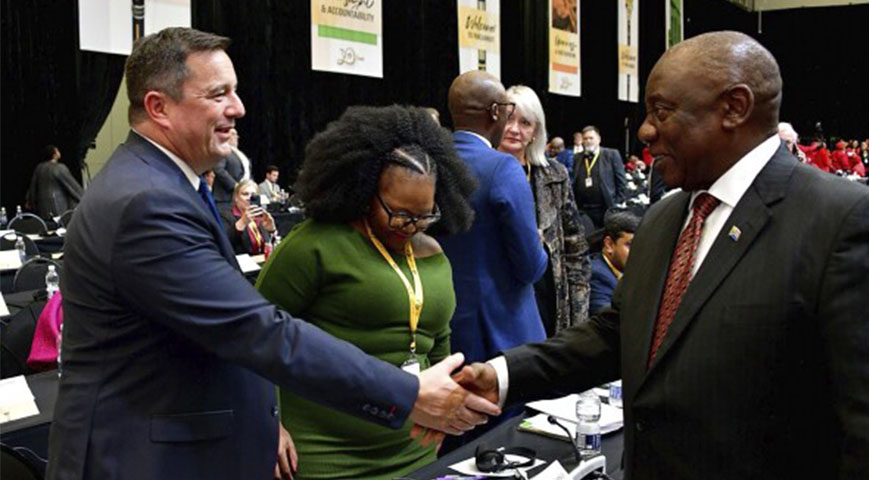South African President Cyril Ramaphosa is set to sign the controversial Basic Education Laws Amendment (BELA) bill into law, stirring tensions within the unity government.
The Democratic Alliance (DA), the second-largest party in the coalition, voiced strong objections, warning that this move could jeopardize the unity government's future.

DA leader John Steenhuisen stated that the bill's passing goes against agreements made during the government's formation, which was established after the African National Congress (ANC) lost its parliamentary majority in the May elections.
Steenhuisen did not provide specifics on the consequences but stressed the seriousness of the issue. He is expected to address the media in Cape Town to clarify the DA's role in the coalition moving forward.
Did you read this?
Meanwhile, Ramaphosa’s spokesperson, Vincent Magwenya, urged calm, stating that coalition governments' disagreements over legislation are natural. He reassured that the president is not concerned about the collapse of the government of National Unity (GNU), and discussions are underway to resolve the dispute.
The BELA bill reforms South Africa’s education system, particularly in language and admission policies. One contentious provision increases government oversight, which the ANC argues will combat racial exclusion in schools.
Critics, led by the DA and Afrikaans advocacy group AfriForum, argue that the bill threatens mother-tongue education and the future of Afrikaans schools.
Ramaphosa is expected to sign the bill on Friday in a ceremony at the Union Buildings in Pretoria. Despite the controversy, government officials remain confident that the coalition will weather the storm.









